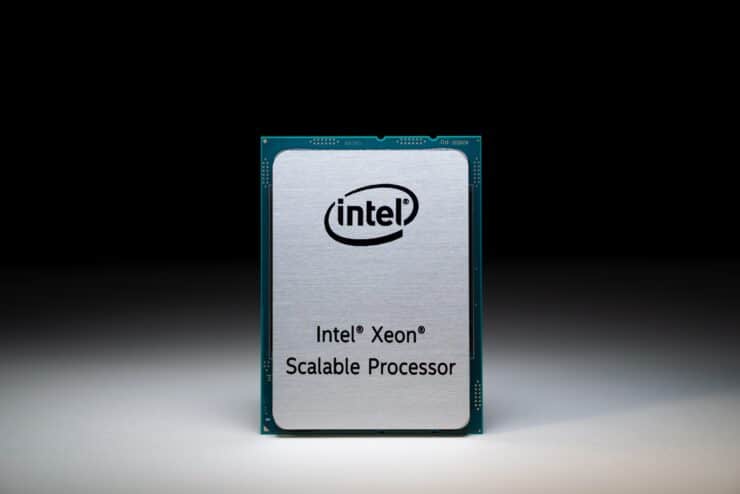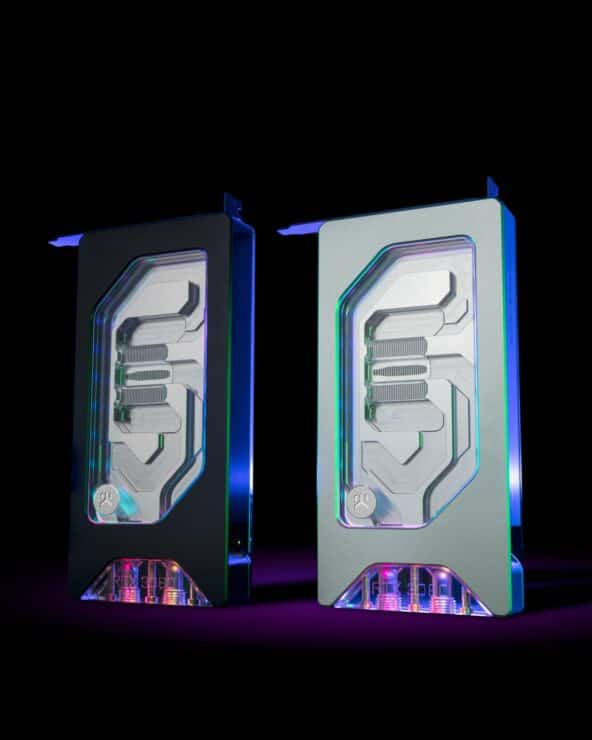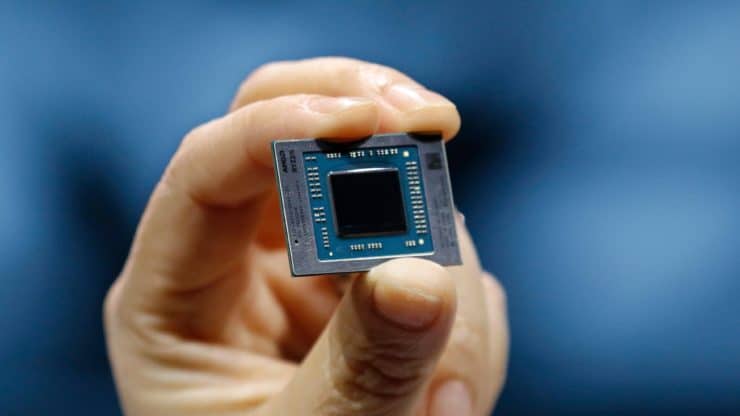
The 2nd-Generation Intel Xeon Scalable platform provides the foundation for a powerful data center platform that creates a leap in agility and scalability. Intel Corporation on April 2, 2019, introduced a portfolio of data-centric tools to help its customers extract more value from their data. (Credit: Intel Corporation)
Quite a few benchmarks of Intel’s 3rd Gen Ice Lake-SP Xeon CPU have leaked out which show a 14 core and 28 thread part and its respective results within various tests. The Ice Lake-SP Xeon lineup will be released next year as Intel recently confirmed and will be based on the new Ice Lake 10nm+ ‘Sunny Cove’ core architecture.
Intel Ice Lake-SP Xeon Silver 14 Core & 28 Thread CPU Benchmarked – Single-Core Performance On Par With Core i9-10900K In ES State But Thanks To AVX-512
The CPU shown is an Ice Lake-SP Xeon Silver chip which is in an early engineering state. The chip features 14 cores and 28 threads. There’s 17.5 MB of L2 and 21 MB of L3 cache onboard. Leaker YuuKi_AnS states that the chip has a base clock of 2.0 GHz and a boost clock of 4.0 GHz however the actual boost operating range is between 1.8 to 2.0 GHz when running all cores.
This could be partially due to the ES nature of this chip. The Xeon Silver Ice Lake-SP CPU comes with a 165W TDP and a maximum operating temperature range of 105C. The CPU is intended to be used on the LGA 4189-5 socket. According to the leaker, the chip could be part of the Xeon Silver 4300 line which is expected to launch next year.
Coming to the test results, the Intel Ice Lake-SP Xeon CPU scores 553.1 points in a single-core and 10038.4 points in the multi-core test. The single-core results put the Xeon chip neck-to-neck with a Core i9-10900K which is Intel’s fastest gaming chip that boosts up to 5.3 GHz. This is impressive for an engineering sample that’s running at vastly lower clock speeds. In multi-core tests, the Xeon-SP ES CPU is about as fast as the Ryzen 9 3950X which is a 16 core and 32 thread part. This should put the Xeon-SP CPU in the same ballpark as the Ryzen 9 5900X which is a 12 core and 24 thread part but with much higher multi-threaded performance over its predecessor thanks to the Zen 3 core architecture.
However, there’s one thing to note that the latest CPU-z version was used which makes full use of AVX-512 and that is a major contributor to Intel’s performance here. Without AVX-512 acceleration, the Intel Ice Lake-SP Xeon ES CPU is much slower, scoring just 371.6 points in single-core and 6363 points in multi-threaded tests. Other benchmarks include Fritz Chess where the chip scores 19715 points which is just slightly faster than a first-generation 8 core and 16 thread Ryzen CPU.
The leaker also posted some delidded pictures of the Intel Ice Lake-SP CPU which looks to feature a soldered design with gold solder and high-quality liquid metal thermal compound. The silicon lies on a separate package interposer that sits on top of the main PCB. Another interesting detail that is exposed by this delid which would also otherwise remain hidden is the fact that the chip uses an HCC (High Core Count) die and not the XCC (Extreme Core Count) ones that allow for more cores.
Some of the major upgrades that Intel’s 10nm+ for Ice Lake-SP Xeon CPU will deliver include:
- 2.7x density scaling vs 14nm
- Self-aligned Quad-Patterning
- Contact Over Active Gate
- Cobalt Interconnect (M0, M1)
- 1st Gen Foveros 3D Stacking
- 2nd Gen EMIB
The Intel Ice Lake-SP lineup would be directly competing against AMD’s enhanced 7nm based EPYC Milan lineup which will feature the brand new 7nm Zen 3 core architecture which offers a huge 19 percent uplift in IPC over the original Zen core.





More Stories
EKWB Unveils The Quantum Vector FE RTX 3080 D-RGB – Special Edition Blocks For GeForce RTX 3080 FE Graphics Card
AMD Ryzen 7 5800H 8 Core & 16 Thread Cezanne ‘Zen 3’ High-Performance CPU Shows Up, Early ES Chip With 3.2 GHz Clocks
AMD Ryzen 9 5950X 16 Core Flagship CPU Benchmarked Again, Crushes Intel’s Top Core i9-10980XE 18 Core HEDT Chip